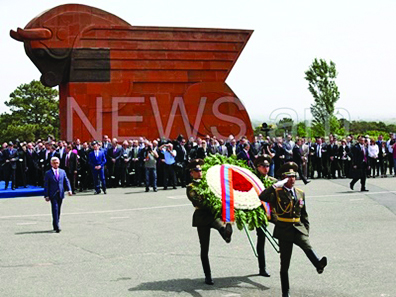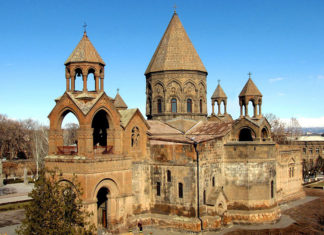By Cengiz Candar
Soon after the insurgency in Syria got underway, Turkish leader Recep Tayyip Erdogan revealed his sensitivity about Aleppo for the first time. Around midnight on March 29, 2011, we were on board his aircraft flying back to Turkey from his visit to Iraq. Erdogan had made history as the first Turkish prime minister to pay an official visit to the Kurdistan Regional Government (KRG).
We were flying from Erbil back to Ankara, following a dinner given in his honor in the residence of once-and-future KRG Prime Minister Nechirvan Barzani, in the presence of his uncle and father-in-law, KRG President Massoud Barzani. There were three of us journalists listening to Erdogan; one is now an adviser to Erdogan, who became president in 2014, and the other is at large as a wanted Gulenist following the failed July 15 coup attempt.
In 2011, the so-called Arab Spring had just knocked on Syria’s door with March 15 disturbances in the southern town of Daraa and with some minor demonstrations in Damascus. It was too early to call it an uprising. But what if the disturbances in Syria turned into a revolutionary situation such as those in Tunisia and Egypt, I wondered. At that point, Erdogan was a close friend of Syrian President Bashar al-Assad, an Alawite, and Syria’s Sunni majority had pinned its hopes on Erdogan as a pious Sunni leader of its strong neighbor, Turkey. Would not the evolution of events in Syria be an embarrassment for Erdogan? How would he tackle it in such a case? Erdogan expressed the geopolitical importance of Syria, especially Aleppo, to Turkey.
In 2012, large parts of Aleppo fell under the control of opposition or rebel groups supported with differing intensities by the United States, but fully by Turkey.
Now, Aleppo, the jewel of the Syrian crown in terms of Turkey’s Syria policy, is about to be recaptured by Assad’s forces. At the beginning of the week, one-third of the area within Aleppo that had been under rebel control was recaptured by the government. Eastern Aleppo neighborhoods came under government control. They were the first areas that had fallen into the hands of the rebels in 2012 when insurgents seized more than half of the city.








